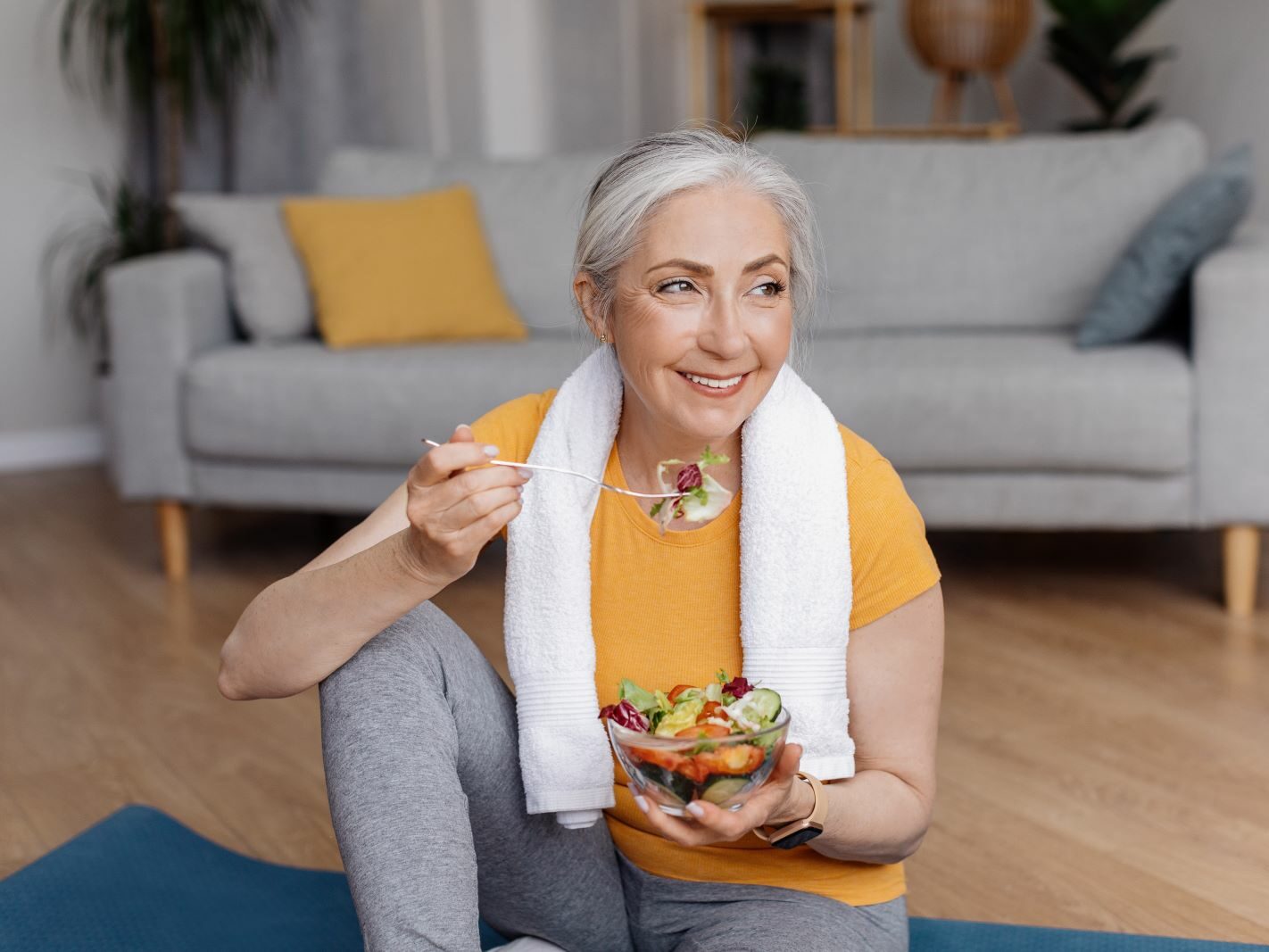Dietitians Share Key Nutrition Tips for Older Adults
Eating well is important at any age, but nutrition plays an even more critical role as we get older. Proper nutrition can help promote health and functionality into the later years. To address the unique dietary requirements of seniors, we asked dietitians to share their top nutrition tips specifically for older adults. From optimizing protein intake to staying hydrated and beyond, these expert-backed recommendations aim to support the health and well-being of older populations through smart nutritional strategies.
These are the must-know strategies that registered dietitians recommend as top nutrition tips for older adults.
Strength Train
One of the most important things you can do as an older adult is stay active and strength train if you can. As you get older, maintaining your muscles can get a little trickier. It’s essential that you keep moving your body and work on maintaining (and building) muscle. While you work on staying active, it’s also super important that you eat enough protein. Protein helps your body build new muscle and maintain the muscle that you have. You can easily do this by making sure each meal has a good protein source like meat, eggs, Greek yogurt, cottage cheese, tofu, lentils, edamame, or tempeh. Whenever you can, add fruits and veggies to your meals. If preparing produce is a challenge, grab the pre-prepped kind at the grocery store to minimize chopping.
Jamie Nadeau, Registered Dietitian of The Balanced Nutritionist
Focus on Fiber

Choose fiber-rich foods such as legumes, fruits, and vegetables to get the most vitamins, minerals, and antioxidants out of your meals and also to help keep you regular. Eating a diet that’s rich in fiber can help prevent constipation and make sure that your body is able to flush out excess waste. Fiber feeds the beneficial bacteria in our gut, helping to reduce inflammation and improve immunity. Eating a fiber-rich diet can also reduce the risk of certain diseases like heart disease, balance out blood sugar levels, and help lower cholesterol levels.
Ashley Kitchens, MPH, RDN, plant-based registered dietitian and owner of Plant Centered Nutrition.
Focus on Vitamin B12
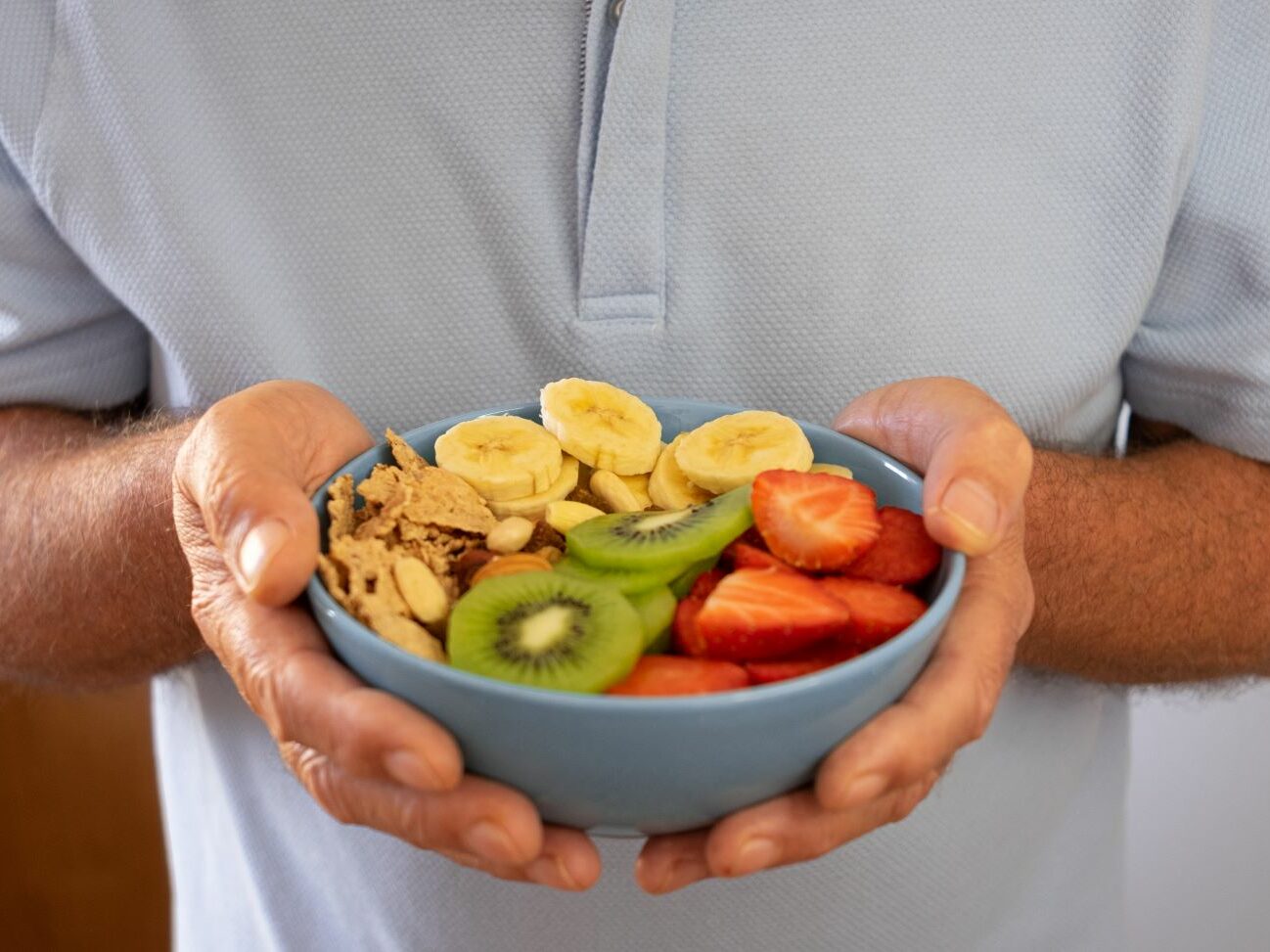
Vitamin B12 is an essential micronutrient that plays a crucial role in brain and nervous system health, energy production, and red blood cell production. Unfortunately, older adults are at higher risk of vitamin B12 deficiency due to age-related changes in the digestive system that can affect absorption. That’s why it’s so important for older adults to ensure they’re getting enough vitamin B12 in their diet and through supplementation as needed.
Ashley Kitchens, MPH, RDN, plant-based registered dietitian and owner of Plant Centered Nutrition.
Trying Out New Things

Variety is literally the spice of life and the one that can make your kitchen and cooking feel alive again. Search for new recipes and new techniques, and try out flavor combinations you’ve never tried. It’s never too late to increase the variety of food you eat!
Jessi Holden, MS, RDN Culinary Dietitian and Owner of The Kitchen Invitation
Get Enough Proteins and Calories
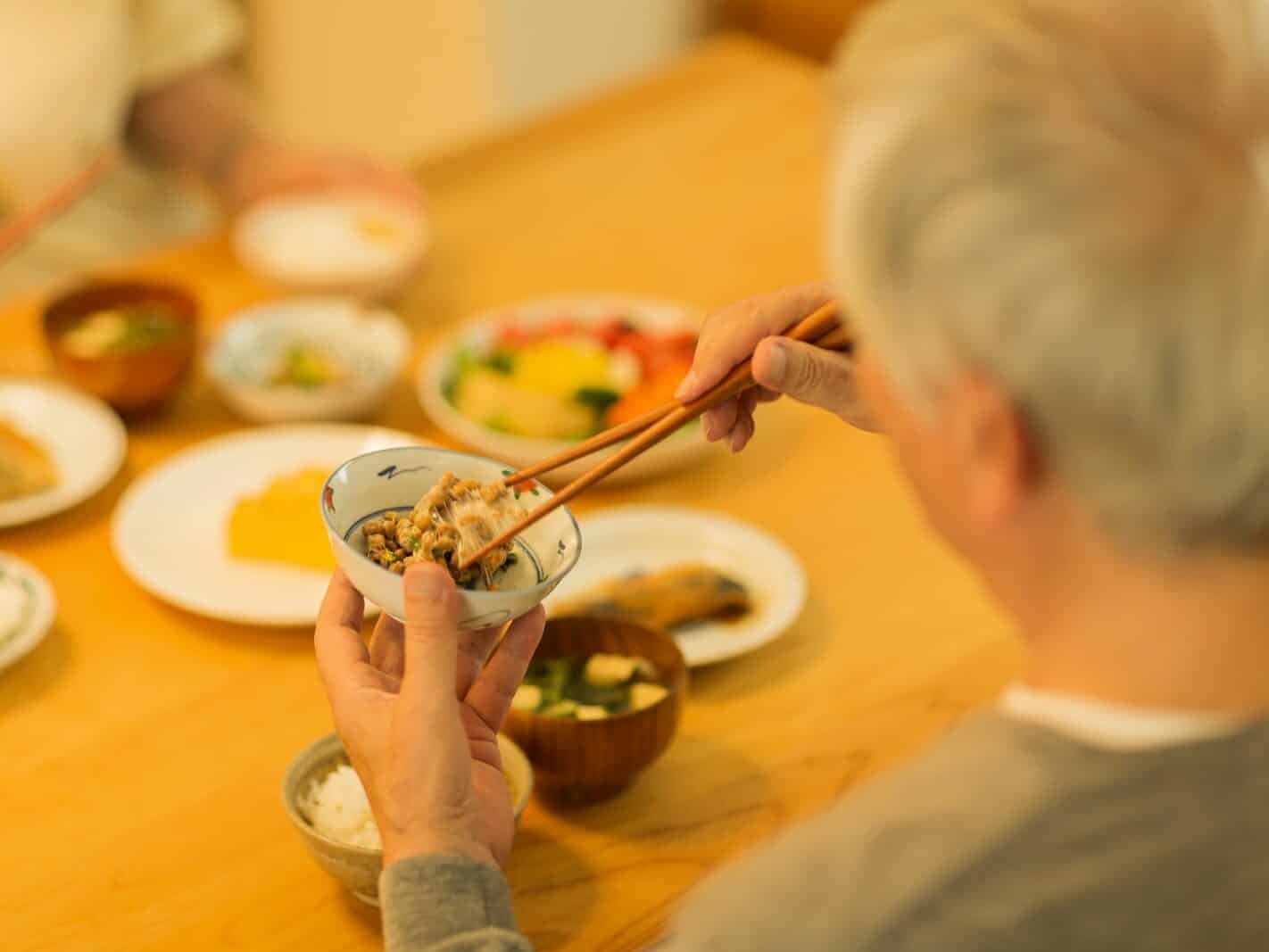
Get enough protein and calories in your diet. I see a lot of chronic dieters who are on the vicious “diet, cheat, repent, repeat” cycle. They tend to underfeed themselves and lose muscle mass. I suggest at least 1 gram of protein/kg unless they have underlying kidney or liver disease. Calories vary based on activity, but I rarely go below 1400 per day.
Lisa Andrews, MEd, RD, LD Owner, Sound Bites Nutrition
Drink Plenty of Water

Stay hydrated! Sometimes with age, you might lose a bit of your sense of thirst, and water is vital to every bodily function. To be sure you are getting enough, you can fill a jug to put in the refrigerator to help you keep track. Milk, coffee, tea, juice, and soup count too. And plenty of fruits and vegetables have a high water content to add to your overall intake.
Kate Ingram, MPH, RD, RYT-500, The Vitality Dietitians
Follow a Nutrient-Dense Diet Plan
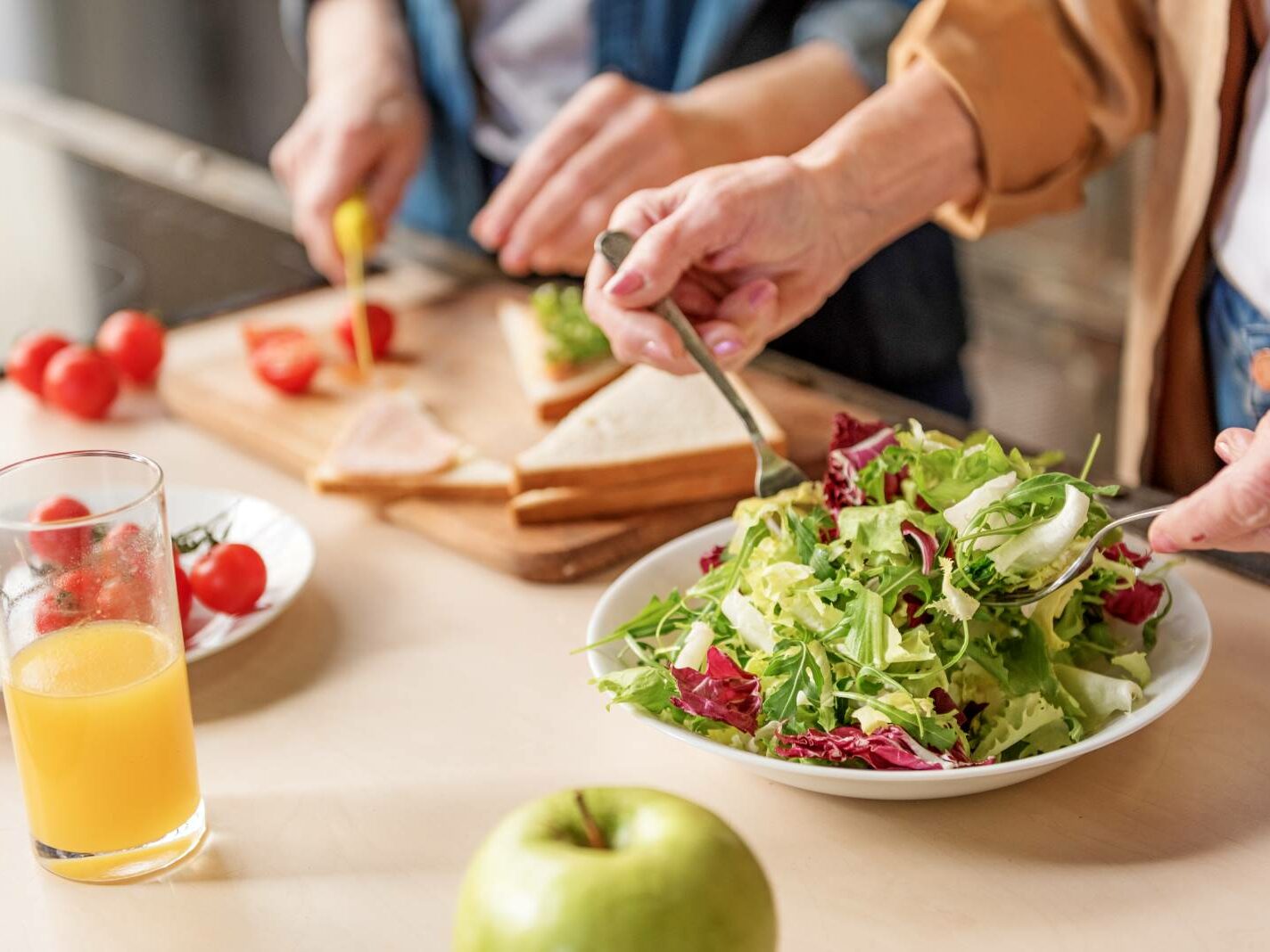
Be sure you are following a nutrient-dense eating plan. The Mediterranean diet, the DASH diet, or the MIND diet can help guide you to getting those all-important fruits, vegetables, lean proteins, whole grains, and healthy fats to support a healthy mind and body as you age.
Kate Ingram, MPH, RD, RYT-500, The Vitality Dietitians
Sleep Quality and Quantity is Essential for Good Health

Sleep quality and quantity are crucial at this stage of life. Consistently getting enough quality sleep during the week and the weekends. Some simple tips for improving sleep quality include sticking to a sleep schedule, creating a peaceful bedtime routine, avoiding alcohol, managing stress, limiting naps, turning off electronics before bed, limiting caffeine and eating before bed, and getting joyful activity. If sleep apnea is a concern, see an MD or sleep specialist.
Amy Beney, MS, RD, CDCES, owner of Nutrition Insights
Prunes To Prevent Bone Loss

As we age, women begin to lose bone rapidly during the first five years after menopause, and men and women lose bone at the same rate by age 65-70. Research suggests that eating 5-6 prunes each day may help to prevent bone loss! Prunes are an important food-based option to support bone health across the lifespan containing vitamins and minerals essential to bone health like potassium, magnesium, vitamin K, and the plant-based compound polyphenols. In addition, prunes can support many areas of women’s health, including bone health, heart health, digestive health, satiety, and blood sugar.
Lauren Harris-Pincus, MS, RDN, founder of NutritionStarringYOU.com and author of The Everything Easy Pre-Diabetes Cookbook.
Eat Your Fish

Seafood is rich in high-quality protein, which can help preserve muscle mass and prevent muscle loss, per past research. Seafood is rich in omega-3 fatty acids EPA and DHA, which aren’t found naturally in many other foods. Consumption of omega-3s is essential for both brain and heart health and may also prevent cognitive decline amongst older adults, per past research.
Roxana Ehsani, MS, RD, CSSD, LDN, Registered Dietitian Nutritionist and Board Certified Sports Dietitian located in Miami, FL
Take a 15-minute Walk

My go-to nutrition tip for older adults is to include a 15-minute walk outside as part of your morning routine. Walking is a simple, cost-effective exercise that is easy on the joints. There are several benefits to walking that target concerns specific to that age group, including: improving cardiovascular health, strengthening bones, and delaying cognitive decline. As an added bonus, walk during the early morning to get in some sunlight. Exposure to sunlight during the morning hours can have additional benefits, such as: improving quality of sleep, promoting Vitamin D production, and boosting mental health.
Ryann Jung, MS, RD, Nutrition with Ryann
Hydrate Outside of Just Drinking Water
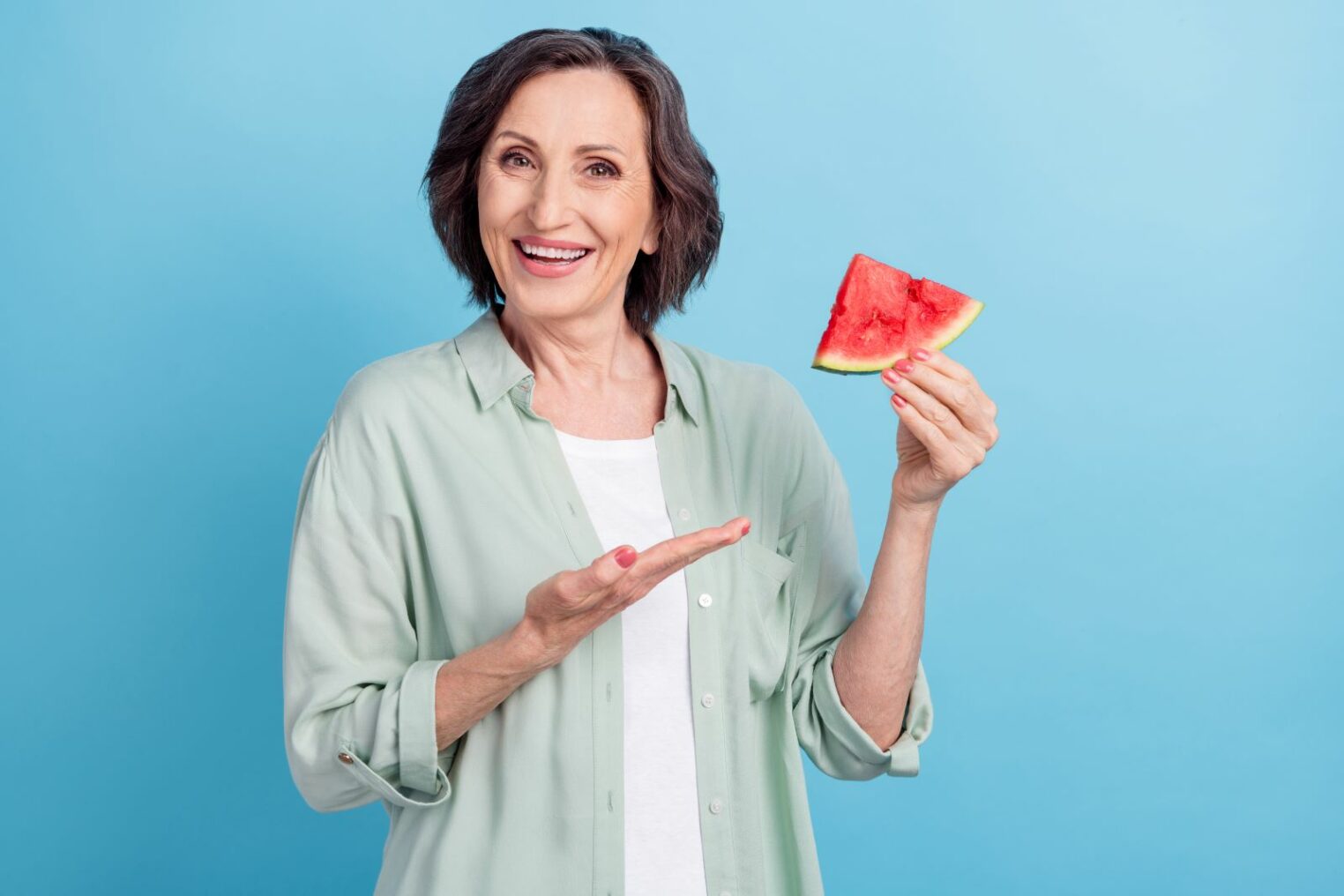
Find fun ways to stay hydrated! Make infused waters or homemade popsicles, opt for soups and high-water content produce like cucumbers or watermelon, and keep some fluids within arm’s reach whenever possible.
Diana Mesa, RD/LDN, CDCES
Preserve Brain Health with Fatty Fish
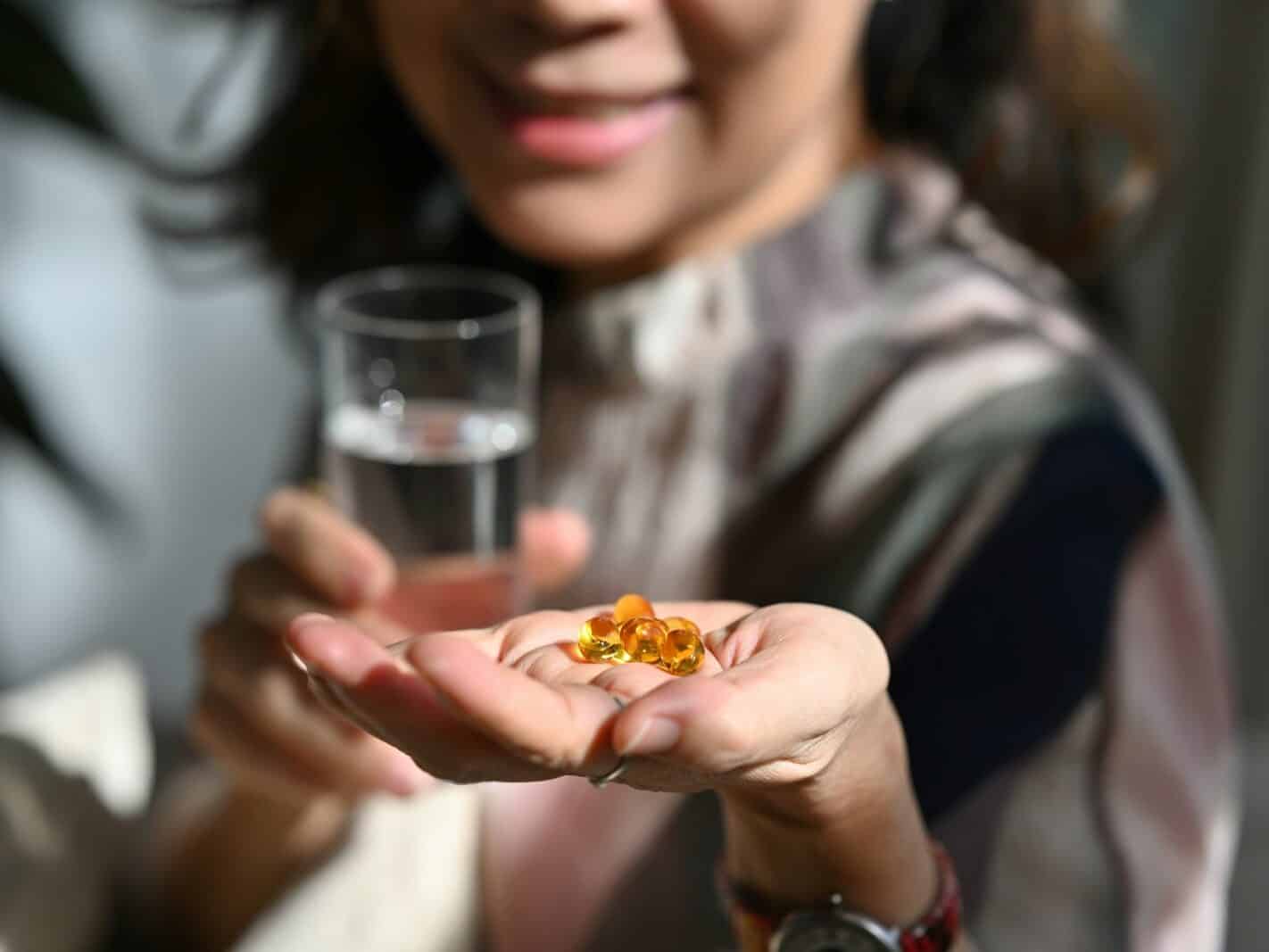
Omega-3 fatty acids are powerful nutrients that may help preserve brain function associated with aging, reduce inflammation, and promote heart health. A diet high in omega-3 fatty acids is associated with less age-related cognitive decline and a lower risk of Alzheimer’s disease. Additionally, eating more omega-3 fatty acids may help improve cholesterol and triglyceride levels and limit inflammation that can wreak havoc on the body. Aim to eat 2 servings of low-mercury fatty fish per week to boost your omega-3 intake. As a registered dietitian, I recommend salmon from Chile because it’s particularly high in beneficial omega-3 fats and low in mercury.
Bianca Tamburello, RDN on behalf of the Chilean Salmon Marketing Council
Collagen Supplement

Individuals struggling with joint pain or arthritis: Some studies suggest that taking collagen supplements may help reduce joint pain and stiffness, especially in individuals with osteoarthritis.
Individuals with skin aging concerns: Collagen is an important component of the skin and taking collagen supplements may improve skin elasticity, hydration, and overall appearance.
Athletes or those looking to increase muscle mass: Collagen is important for muscle health and may help increase muscle mass and strength.
Kathryn Piper RDN LD, The Age-Defying Dietitian
Prioritize Non-Starchy Veggies
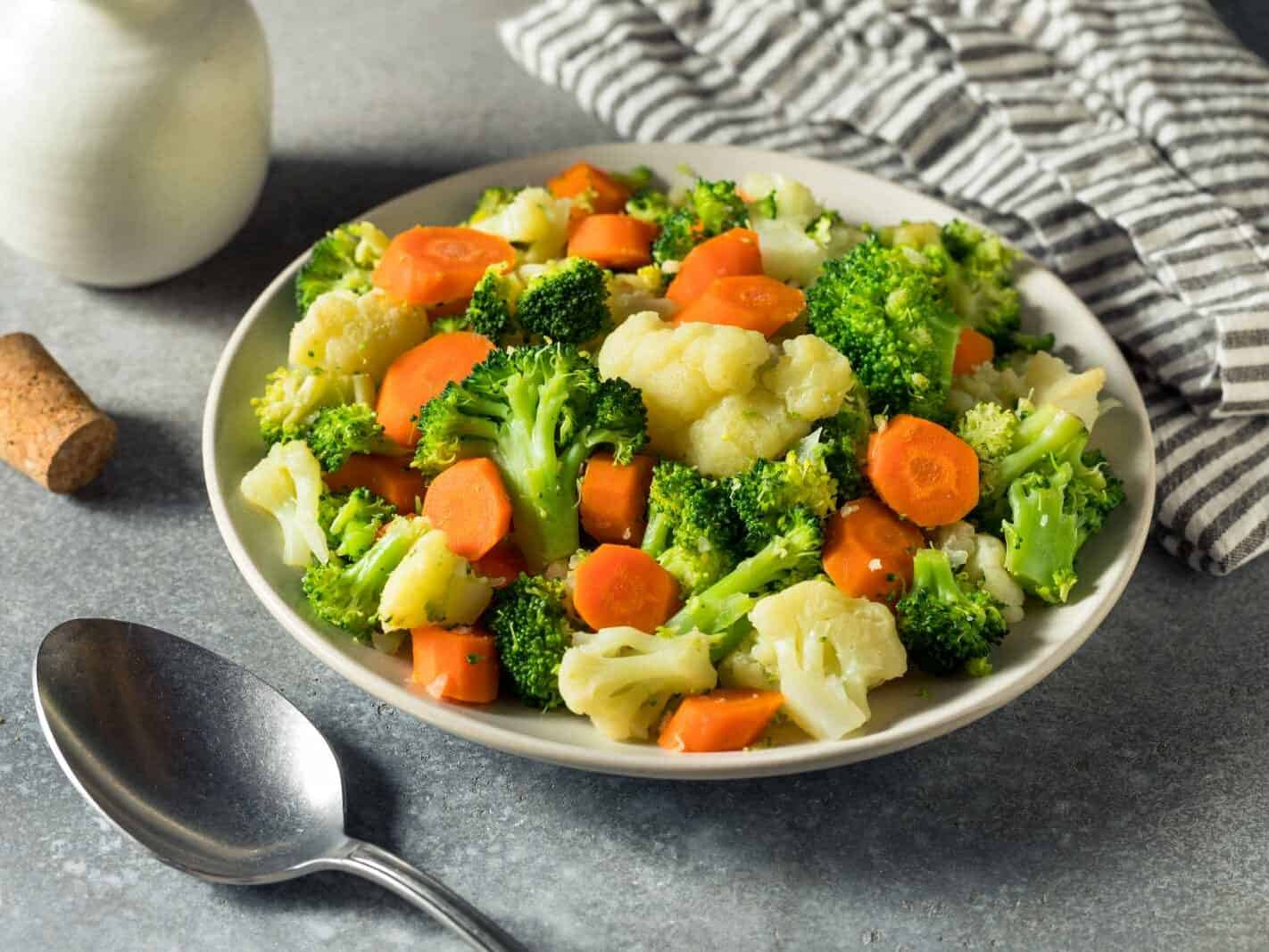
One of my go-to nutrition tips for older adults is prioritizing non-starchy vegetables. Weight loss becomes more challenging as you age, and non-starchy veggies provide a lot of water and volume for a small amount of calories.
Fill half your plate with colorful, non-starchy veggies like cauliflower, broccoli, leafy greens, and asparagus.
Melissa Mitri, MS, RD, Nutrition Writer and Owner of Melissa Mitri Nutrition


